When I think about my mother, my mind often goes to one of our annual trips to Cape Cod when I was younger. On one such visit, we were on our way to her friend Beverly’s house, when she said, “You’ve got to see her new rug.” She then proceeded to rave about the designer, Claire Murray, a purveyor of quaint, Cape Cod-themed home décor.
My mother didn’t covet much, but she made no secret about her feelings about that rug. The hand-hooked pile was plush, the design quintessential Cape Cod: the pale blue Atlantic Ocean surrounded by cedar-shingled cottages, lighthouses, starfish, sailboats, seagulls, windmills, and rose-covered trellises.
My mother didn’t covet much, but she made no secret about her feelings about that rug.
Every time we visited Beverly after that, Mom pointed out the rug. She didn’t need to—by then, I wanted one just like it, too. Neither of us could justify such an extravagant purchase, though. The Claire Murray indulgence she ended up with instead was a two-by-three-foot washable throw featuring four Dalmatians sitting at attention. She bought it on sale.
When I grew nostalgic for the Cape, I would visit the Claire Murray website, click on the link for the Coastal Treasures line, and fantasize about filling my house on the prairie with rugs that reminded me of a place that was dear to my family—a place where we dreamed of owning a cedar-shingled cottage by the sea.
Read More: Cut Out of the Will? What to Do If Someone Is Getting Shortchanged
A Cottage by the Sea?
Mom, who grew up on a farm in central New York, fell in love with Cape Cod on her honeymoon in 1958. She and Dad planned to retire there. Neither of them swam or fished or sailed, but every summer they packed my sister and me into our Plymouth Valiant sedan and drove 325 miles from our house in Utica to Barnstable, where we stayed in a cottage up the road from the bay for the month of July.
Every day, Mom took Amy and me to the beach while Dad, a rabbi, stayed in the cottage, working on sermons. At night we saw plays at one of the Cape’s summer stock theaters or movies at the Hyannis Drive-In. At least four nights a week we visited The Four Seas for ice cream so Dad could taste every flavor before the month was up.
Those idyllic summers came to an end in 1970, when the landlord hiked the rent on the cottage. Mom and Dad’s month in paradise turned into a week in a Hyannis hotel. Amy’s and my month in paradise turned into a month at Glengarra Girl Scout Camp in the wilderness of western New York.
I hated Girl Scout camp, but I knew better than to expect we’d return to the Cape. When my parents made a decision, they stuck with it. I’m sure they would have sent Amy and me to Glengarra until it was time for us to go to college. But then, in 1974, Dad died. All our plans were upended.
Remembering Mom: Another Chance
The synagogue owned our house, so we had to move. Mom planned to use Dad’s meager pension to buy a place to live, but because she couldn’t afford anything in Utica, she rented an apartment instead. One weekend, she left Amy and me with friends, and when she returned on Sunday night, she was beaming. We hadn’t seen her that happy since Dad was alive.
“I bought a house on the Cape,” she announced. “We’ll be spending our summers there again.”
The Cape became our refuge in a way it hadn’t when we’d been a family of four.
In those years immediately after Dad’s death, the Cape became our refuge in a way it hadn’t when we’d been a family of four. During the school year, Mom, a teacher, was often tense and quick to lash out at Amy and me. The soundtrack to my teenage years in our Utica apartment was a medley of raised voices, tortured crying, slammed doors, uncomfortable silences punctuated by the occasional civil conversation, and, less frequently, laughter. But on the Cape, where we entertained friends and family almost nonstop in July and August, my sister and I remember only the laughter—plus lively conversations and companionable silences.
“That was our happy place,” is how my sister put it.
Our Cape house was nowhere near the ocean. We didn’t go to the Four Seas every other night. On many evenings, we’d drive around and gawp at the summer houses in Osterville and Hyannisport, the ritziest nearby towns.
“Can you imagine the electric bills for that place?” Mom would say. Or, “How long would it take to clean all those windows?”
And thus we came to appreciate what we did have: a modest, cedar-shingled ranch house four miles from the ocean, a half-acre of backyard, an outdoor shower, and a deck on which we could host dinner parties.
Retiring in Paradise
In 1983, Mom retired and moved to the Cape full time. She sold the house and bought a more manageable condo closer to civilization in Hyannis. I was working in New England then, so I visited often. But when I married and moved to Canada, my visits dwindled to twice a year. After my husband and I had children, the visits were even less frequent.
Every time I returned to the Cape, I felt a longing that was as physical as it was emotional. I was a part of the place, and I wanted to be there. The longing grew more acute in 2011 after Mom, who had been diagnosed with Parkinson’s disease, left the Cape for Milwaukee, to be near Amy. She could still live independently, but she knew the Parkinson’s would soon make that impossible.
Mom’s declining health meant there would be no inheritance.
Her plan was to rent out the condo and use the income to pay for her Milwaukee apartment.
“It’s your inheritance,” she reminded Amy and me. “I want you to always have a place on the Cape.”
In case she didn’t find a tenant right away, I took a part-time job to supplement my freelance writing income so my husband and I could help with her expenses. Eight years later I still have the job, but the condo is long gone. Within four months of moving to Milwaukee, no tenant had materialized, and Mom feared one wouldn’t. The decision was made to sell. Pointing out that she’d always promised to pass the condo on to Amy and me was an exercise in futility.
The truth was, living where I did meant I couldn’t make much use of the condo. As for Amy, she couldn’t afford the travel or time off work. We’d have wound up renting it out full time, which meant we wouldn’t have been able to spend summers there anyway.
Read More: What My Mother Remembers: A Daughter’s Dementia Diary
A Mother’s Legacy
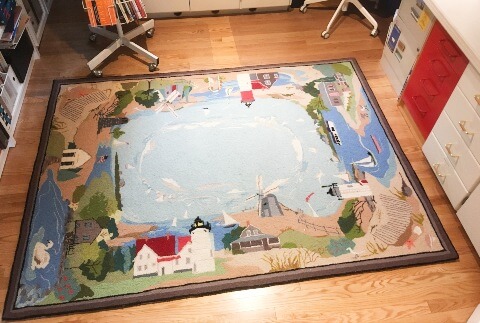
A rug in the author’s office. Image: Debby Waldman
It had been a pipe dream to believe Mom could maintain two homes and we could help her. Intellectually, her decision to sell made sense. Emotionally, it was harder to let go. I fantasized that maybe, after she died, Amy and I could take whatever inheritance there was and buy a small cottage: one we could rent out for whatever part of the summer we wouldn’t be there, and close up for the rest of the year.
As it turned out, my fantasy was just that. Mom’s declining health meant there would be no inheritance. Less than three years after leaving the Cape, she had to move to a nursing home. The monthly fees there were six times higher than her rent had been. At that rate, she’d be broke within a year. My part-time income wouldn’t come close to making those ends meet.
I didn’t have to think twice about what I’d buy with this unexpected bounty.
The only way for her to afford the nursing home was to turn her money over to an irrevocable trust administered by the State of Wisconsin. Whatever remained after she died wouldn’t come to me and my sister, it would go into a general fund to help other Wisconsinites who needed but could not afford nursing home care.
I stopped fantasizing about a cottage by the sea. Instead, I took stock of what I had already inherited from Mom: a slow metabolism, good skin, common sense, an innate ability to make people feel at home, a commitment to always look at the cup half full, the Jewish values of gemilut hasadim, and an appreciation of nice things.
Mom lived in the nursing home for a little more than four years. She died exactly one week after her 90th birthday. By then, my sister and I had emptied most of her room—as her Parkinson’s progressed we’d had to remove the tripping hazards, including the Dalmatian rug. So on one of my visits to Milwaukee, I stuffed it into my suitcase, brought it home with me, and put it in my office—a little piece of Cape Cod to inspire me as I worked.
Not long after, Amy informed me that the school district where Mom had taught was awarding us a $5,000 death benefit. I thought back to the first time I’d had an unexpected windfall, when I was 25 and got a lucrative (to me at least) assignment to write an article for a major women’s magazine.
“Buy something nice so you can enjoy it,” Mom advised me then. “Put the rest in an IRA.”
I didn’t have to think twice about what I’d buy with this latest unexpected bounty: “By the Sea,” a five-by-seven-foot rectangular version of Beverly’s rug—the one that Mom and I loved so much.
It fits my office floor as if it had been designed for the space. The Dalmatians sit just outside my office door—a welcome mat, fittingly enough.
I don’t have a Cape Cod condo or a cottage by the sea, but I have something perfectly suited to my needs, my home, and my heart.

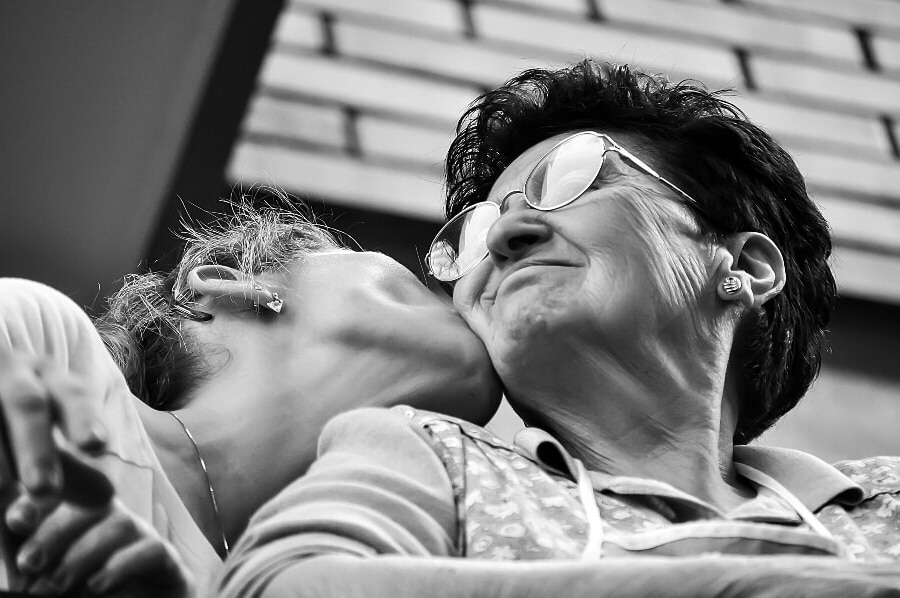




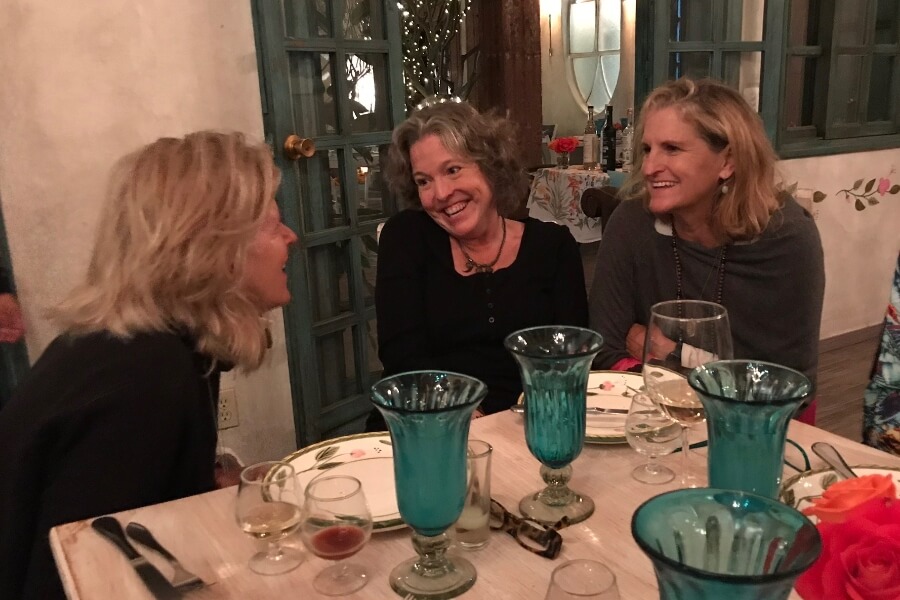



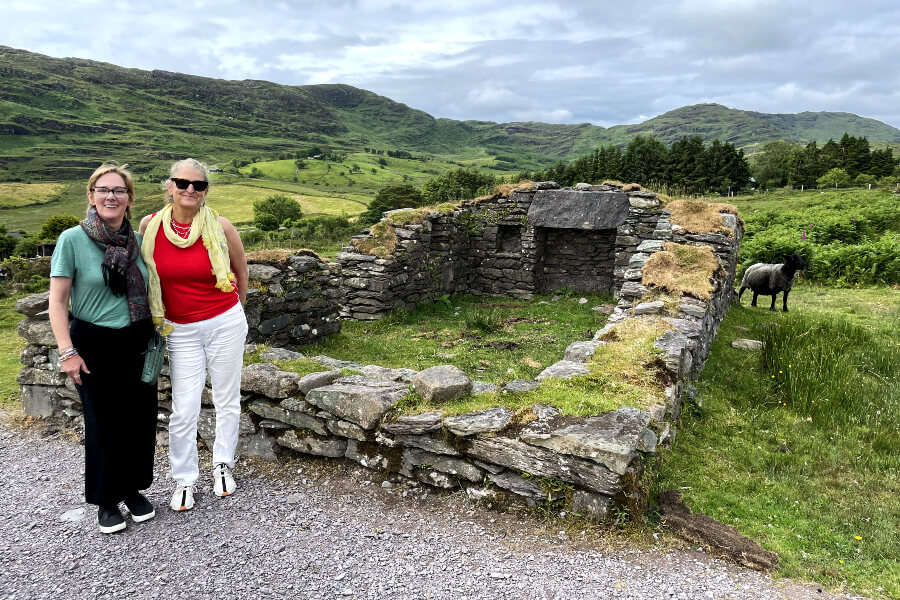
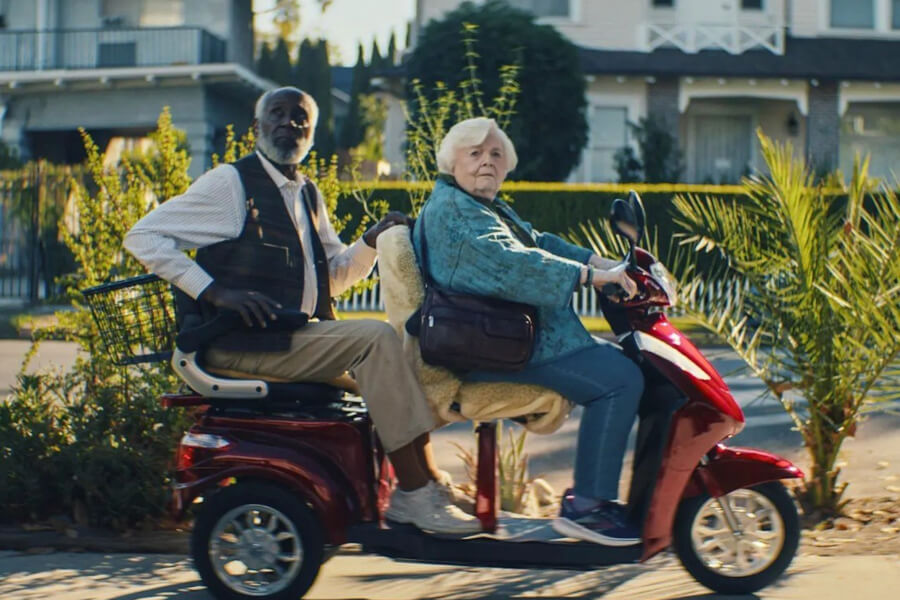









0 Comments